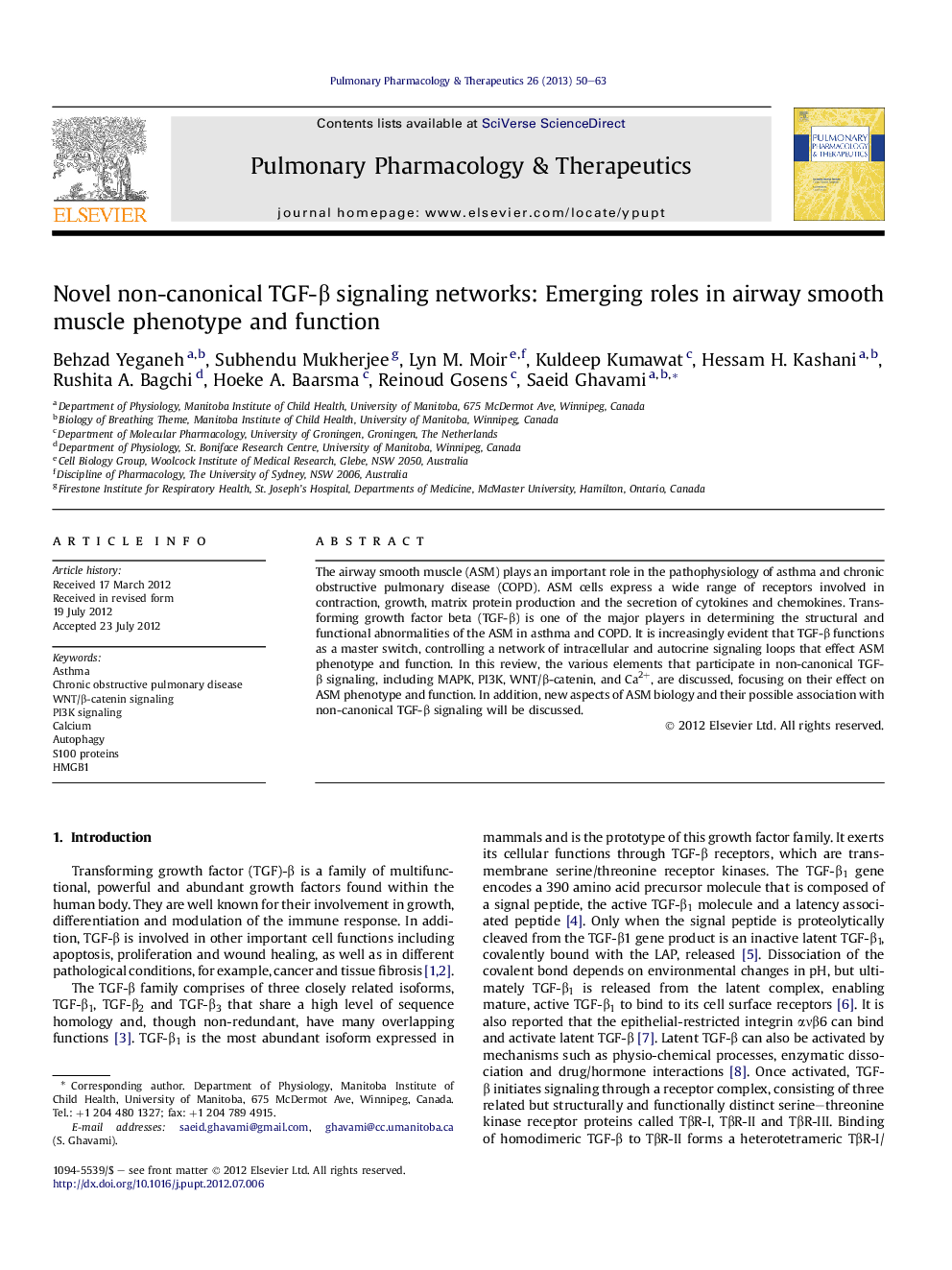| کد مقاله | کد نشریه | سال انتشار | مقاله انگلیسی | نسخه تمام متن |
|---|---|---|---|---|
| 2567333 | 1128326 | 2013 | 14 صفحه PDF | دانلود رایگان |

The airway smooth muscle (ASM) plays an important role in the pathophysiology of asthma and chronic obstructive pulmonary disease (COPD). ASM cells express a wide range of receptors involved in contraction, growth, matrix protein production and the secretion of cytokines and chemokines. Transforming growth factor beta (TGF-β) is one of the major players in determining the structural and functional abnormalities of the ASM in asthma and COPD. It is increasingly evident that TGF-β functions as a master switch, controlling a network of intracellular and autocrine signaling loops that effect ASM phenotype and function. In this review, the various elements that participate in non-canonical TGF-β signaling, including MAPK, PI3K, WNT/β-catenin, and Ca2+, are discussed, focusing on their effect on ASM phenotype and function. In addition, new aspects of ASM biology and their possible association with non-canonical TGF-β signaling will be discussed.
Journal: Pulmonary Pharmacology & Therapeutics - Volume 26, Issue 1, February 2013, Pages 50–63